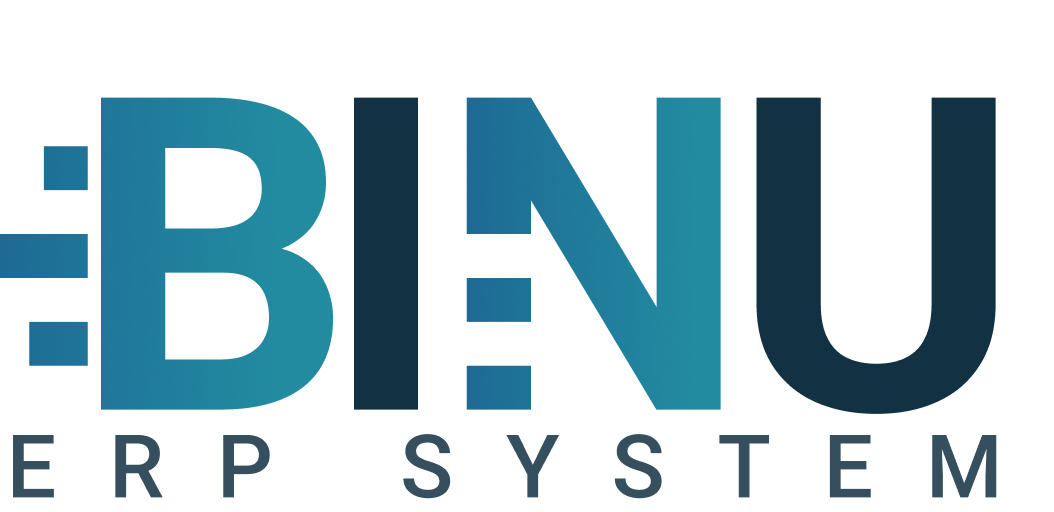In the competitive world of exhaust manufacturing, efficiency and precision are key to maintaining an edge. With the growing complexity of manufacturing processes, integrating advanced technology into your operations has become crucial. Enter the Rwave ERP system, an innovative exhaust manufacturing software designed to streamline processes, enhance productivity, and drive business growth.
Challenges and Opportunities in The Exhaust Manufacturing Industry
The exhaust manufacturing industry is a crucial component of the automotive and industrial sectors, specializing in the production of systems that manage exhaust gases and reduce emissions. This industry encompasses various components such as mufflers, catalytic converters, and exhaust pipes, each playing a vital role in controlling engine noise, improving fuel efficiency, and mitigating environmental impact. As global regulations become stricter and consumer preferences shift, the industry faces a range of challenges and opportunities that are reshaping its landscape.
Overview
Exhaust systems are essential for managing the emissions from internal combustion engines, and they are integral to meeting regulatory standards for vehicle performance and environmental impact. The industry is driven by the need to balance effective emission control with maintaining engine performance and fuel efficiency. As regulatory requirements evolve, manufacturers must continuously innovate to meet new standards and adapt to emerging technologies.
Challenges
One of the primary challenges facing the exhaust manufacturing industry is regulatory compliance. Governments and regulatory bodies worldwide are implementing increasingly stringent emissions standards to combat pollution and climate change. Manufacturers must invest significantly in research and development to create advanced exhaust technologies such as catalytic converters and particulate filters. This ongoing investment is necessary to ensure that products meet or exceed regulatory requirements and perform effectively in a variety of conditions.
Technological advancements also present both challenges and opportunities for the industry. The rise of electric and hybrid vehicles, which have different exhaust system needs compared to traditional combustion engines, requires manufacturers to innovate continuously. This shift necessitates the development of new components and systems that cater to alternative fuel sources and advanced engine designs, presenting a significant challenge for traditional exhaust manufacturers who must pivot and adapt to these new technologies.
Material costs and supply chain disruptions further complicate the manufacturing process. The volatility of raw material prices, such as stainless steel and various alloys, can impact production costs and profitability. Additionally, global supply chain issues can affect the availability and cost of these materials. Effective management of these challenges is crucial for maintaining production efficiency and cost control. Manufacturers need to adopt strategic sourcing and inventory management practices to mitigate the impact of these fluctuations.
The competitive nature of the exhaust manufacturing industry adds another layer of complexity. With numerous players vying for market share, manufacturers must focus on innovation, quality, and cost-effectiveness to stay ahead. Understanding market trends, customer preferences, and emerging technologies is essential for developing superior products and services that can outperform competitors.
Opportunities in Exhaust Manufacturing
Despite these challenges, the exhaust manufacturing industry also presents numerous opportunities for growth and innovation. Emerging markets, particularly in Asia and Latin America, are experiencing rapid growth in automotive production and sales. This expansion offers manufacturers the chance to enter new markets and establish partnerships with local automotive producers. By leveraging the increasing demand in these regions, manufacturers can broaden their customer base and enhance their market presence.
Technological advancements provide opportunities for innovation in exhaust systems. The development of advanced materials and manufacturing techniques can lead to the creation of lighter, more efficient, and durable exhaust components. Additionally, integrating digital technologies such as sensors and data analytics into exhaust systems can offer valuable insights for performance optimization and predictive maintenance.
The shift towards electric and hybrid vehicles also presents a significant opportunity for manufacturers to diversify their product offerings. Although electric vehicles (EVs) do not require traditional exhaust systems, hybrid vehicles still need advanced components to manage emissions. Manufacturers who invest in research and development to create specialized components for these new vehicle types can capture a share of the growing EV and hybrid market.
Enhancing customer experience is another avenue for differentiation and growth. By providing superior customer service, including customization, technical support, and fast delivery, manufacturers can build strong relationships with clients and enhance their reputation. This approach not only fosters customer loyalty but also encourages repeat business and positive referrals.
Sustainability initiatives offer further opportunities for leadership and differentiation in the market. Manufacturers who prioritize eco-friendly practices, such as using recycled materials, reducing waste, and improving energy efficiency, can appeal to environmentally conscious consumers and meet regulatory requirements. These practices can lead to cost savings and operational efficiencies, creating a competitive advantage in the industry.
The Role of Rwave ERP in Addressing Industry Challenges
Rwave ERP is designed to address many of the challenges faced by the exhaust manufacturing industry. The software provides a comprehensive suite of tools and features that help manufacturers streamline operations, enhance efficiency, and stay competitive in a rapidly evolving market. By integrating various business functions into a single system, Rwave ERP facilitates improved production planning, real-time inventory management, quality control, and optimization. From sales to delivery.
The advanced production planning capabilities of Rwave ERP enable manufacturers to optimize production schedules, reduce downtime, and maximize throughput. Real-time inventory management ensures accurate tracking of stock levels and material usage, minimizing the risk of stockouts and overstocking. The software’s quality control modules help maintain high product standards awhile its supply chain management features streamline procurement processes and improve supplier relationships.
Rwave ERP also offers advanced reporting and analytics capabilities, providing manufacturers with valuable insights into their operations. This data-driven approach supports informed decision-making, helping manufacturers identify trends, monitor performance, and make strategic adjustments. Furthermore, the scalability and flexibility of Rwave ERP ensure that it can adapt to the growing and changing needs of manufacturing businesses.
What is Rwave ERP System?
Rwave ERP is a enterprise resource planning (ERP) system tailored specifically for the manufacturing industry. This robust software integrates various business functions into a unified system, providing real-time data and insights to drive decision-making and operational efficiency.
At its core, Rwave ERP is designed to handle the challenges of manufacturing, including inventory management, production planning, quality control, and supply chain management. By leveraging this specialized software, manufacturers can optimize their operations, reduce costs, and improve overall performance.
Key Features of Rwave ERP for Exhaust Manufacturing
- Advanced Production Planning
One of the standout features of Rwave ERP is its advanced production planning capabilities. Exhaust manufacturing involves complex processes with numerous variables, including materials, machinery, and labor. Rwave ERP helps streamline production planning by providing real-time data on inventory levels, machine availability, and workforce schedules. This ensures that production schedules are optimized, reducing downtime and maximizing throughput.
- Real-Time Inventory Management
Effective inventory management is crucial in exhaust manufacturing to ensure that raw materials and finished products are available when needed. Rwave ERP offers real-time inventory tracking, allowing manufacturers to monitor stock levels, track material usage, and manage reordering processes efficiently. This minimizes the risk of stockouts and overstocking, leading to more accurate demand forecasting and cost savings.
- Quality Control
In exhaust manufacturing, maintaining high-quality standards is essential for meeting requirements and ensuring customer satisfaction. Rwave ERP includes comprehensive quality control modules that allow manufacturers to monitor production quality at every stage. From raw material inspection to final product testing, the software helps ensure high high quality standard along the way.
- Supply Chain Optimization
Efficient supply chain management is vital for the success of any manufacturing operation. Rwave ERP facilitates seamless integration with suppliers and logistics partners, providing real-time insights into supply chain performance. This helps manufacturers optimize procurement processes, reduce lead times, and improve supplier relationships.
- Custom Reporting and Analytics
Data-driven decision-making is key to staying competitive in the exhaust manufacturing industry. Rwave ERP offers advanced reporting and analytics capabilities, allowing manufacturers to generate customized reports and gain valuable insights into their operations. This helps in identifying trends, monitoring performance, and making informed strategic decisions.
Benefits of Implementing Rwave ERP in Exhaust Manufacturing
- Increased Operational Efficiency
By integrating various business functions into a single system, Rwave ERP eliminates the need for disparate software solutions and manual processes. This leads to increased operational efficiency, reduced errors, and faster decision-making. Manufacturers can streamline their operations, improve workflow, and achieve higher productivity levels. - Cost Reduction
Rwave ERP helps reduce costs by optimizing inventory management, minimizing production downtime, and improving supply chain efficiency. By providing real-time data and insights, the software enables manufacturers to make informed decisions that drive cost savings and improve profitability. - Enhanced Customer Satisfaction
With improved production planning and quality control, Rwave ERP helps manufacturers deliver high-quality products on time. This leads to increased customer satisfaction and loyalty, as well as a stronger competitive position in the market. - Scalability and Flexibility
As your business grows, Rwave ERP scales with you. The software is designed to accommodate increasing volumes of data and expanding operational requirements. Its flexible architecture allows for customization and integration with other systems, ensuring that it meets the evolving needs of your business.
Getting Started with Rwave ERP
Implementing an ERP system is a significant investment, and selecting the right solution is crucial for achieving your business objectives. Rwave ERP offers a range of services to support you throughout the implementation process, including consultation, customization, and training.
Try our free demo to test-drive Rwave ERP and allow us to give you best practices.
Learn more about Rwave ERP Implementation and how we can assist you in getting started.
For more information about how Rwave ERP can transform your exhaust manufacturing operations, visit our homepage or contact us for a personalized consultation.
Conclusion
In the dynamic and demanding world of exhaust manufacturing, having the right software can make all the difference. Rwave ERP provides a comprehensive solution that addresses the unique challenges of the industry, offering advanced features and benefits that drive operational excellence. By implementing Rwave ERP, manufacturers can achieve greater efficiency, cost savings, and customer satisfaction, positioning themselves for long-term success.
By leveraging the capabilities of Rwave ERP, manufacturers can streamline their processes, enhance efficiency, and drive sustainability initiatives. This positions them to capitalize on emerging trends and opportunities.

